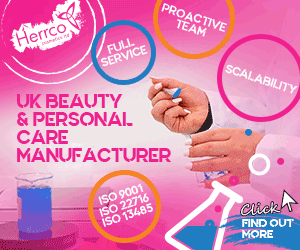Packaging is an essential for brand communication and it is what, most likely, drives consumers to purchase. The packaging’s vital function is containment and protection of the cosmetic formula.
Bottles, sprays, films, roll-ons, tubes and added accessories like pumps, valves, caps and lids, all significantly influence package and formulation co-existence.
Due to usage versatility, storage, transport and constantly altered temperature and humidity conditions, all personal care products should undergo container and formulation compatibility assessment.
Aim of these studies is to ensure the maintenance of physical, chemical, biological and functional properties of the cosmetic formula and to exhibit consumer safety.
The right packaging choice is not only a matter of making your product look good in stores, it should also perform correctly when stored and used.
Assessment of impurities and traces regarding package and formulation compatibility is a mandatory part of the product safety report. A frequently occurring issue with packaging and formulations is the transfer of chemical substances from the package to content via leaching, also known as migration.
Migration might occur in all stages of product manufacturing or storage and can have negative safety impact to end users as well to cause brand reputation impact.
To assess migration levels and address container and formula compatibility, QACS Lab has adopted analytical packaging testing methods like overall and specific migration, NIAS screening and extractables and leachables studies.
Overall migration quantifies packaging migrating substances, without identifying them. Specific migration identifies specific substances like monomers or substances of high concern like phthalates, PAHs, bisphenol A, melamine, acetaldehyde, plastic additives,formaldehyde, heavy metals and others.
NIAS screening detects and quantifies impurities, substances completely unknown, reaction and degradation products, volatile and semi-volatile substances. Extractables and leachables studies evaluate cosmetic substance and packaging material compatibility.
Additionally, QACS offers mechanical and functional properties testing.
In the context of container and active formulation compatibility throughout product life cycle, the cosmetic product is kept for a certain period in real or accelerated storage conditions.
The evaluation includes organoleptic alterations, cracking and paneling, microbiological and chemical stability of content, functionality and others. Packaging testing data are used for safety assessment purposes.
QACS cosmetic packaging testing services test inert (ceramic, glass) and non-inert materials (paper and cardboard, plastics, rubber, silicone, regenerated cellulose, metals, alloys, bamboo, recycled, active and intelligent and flexible).
We also test all container types including polymer films, articles bottles and cups, coloured, non-coloured, printed and non-printed materials.
For packaging testing solutions contact QACS Lab at info@qacs.gr





